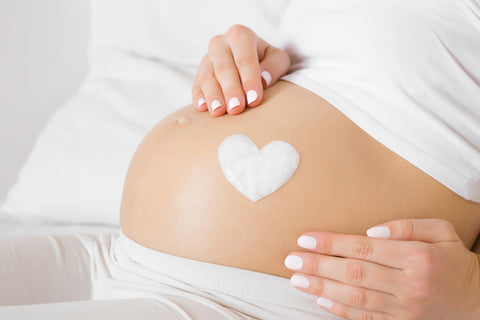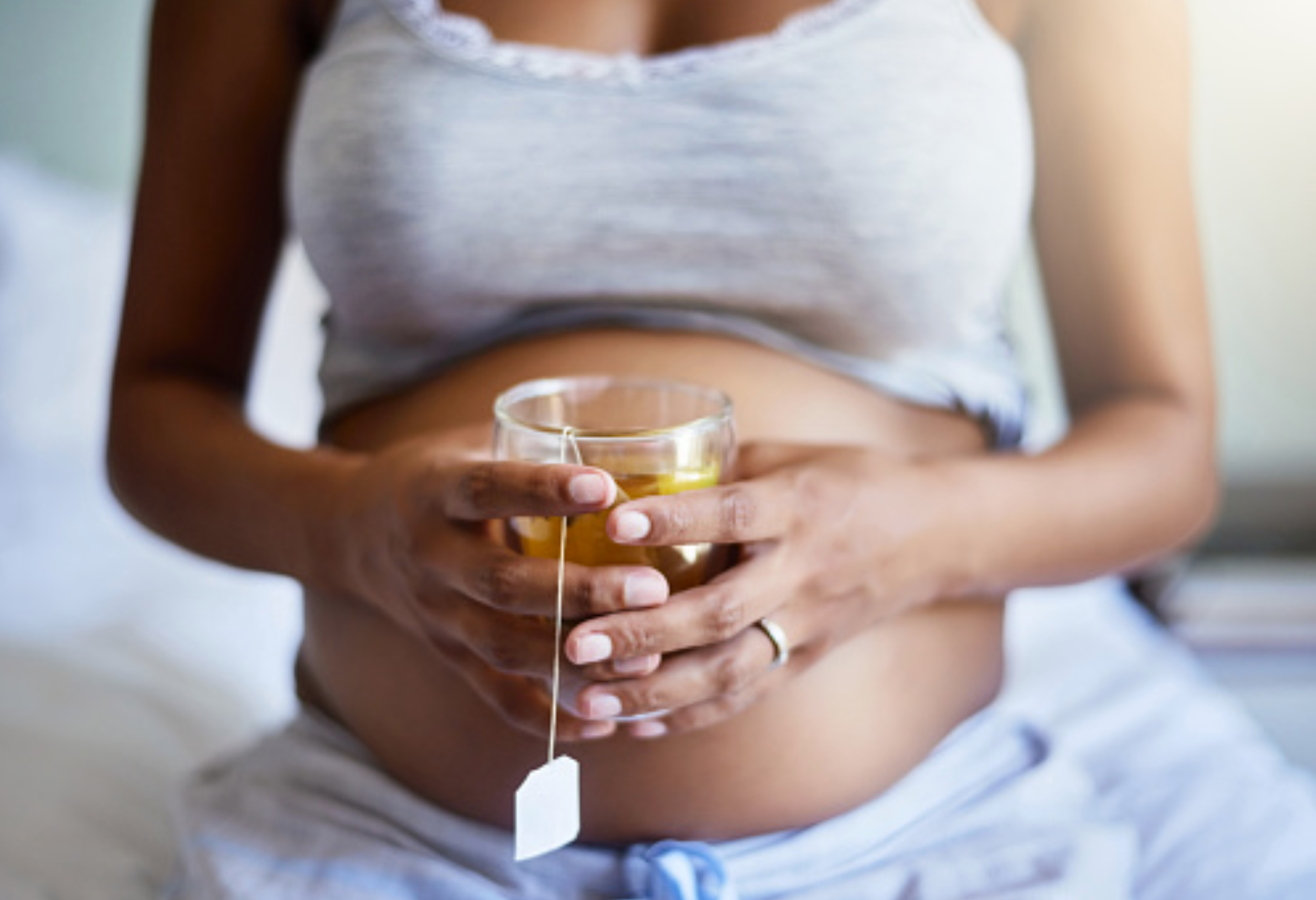
6 Skincare ingredients to avoid whilst pregnant
Sometimes pregnancy can feel like a constant state of change, from your growing belly to your crazy sense of smell to the whole list of new products and foods you’re no longer allowed to have.
Many of you preggos are often wondering which skincare products you can and cannot safely use. And the research isn’t easy. There are so many non-fact-based opinions to find on the internet. When it comes to skincare, it can be difficult to find one simplified list of what you can’t use. So, we decided to make it for you! Read on for our list of pregnancy skincare no-nos we put together for you...
1 Retinol or Retinoids or Vitamin A
First a quick comment about the relationship between the three of them. Retinoids are a group of vitamin A derivatives that have become “the gold star” in anti-aging skincare. Retinol is a specific type of retinoid. So, in a way they are all the same!
A high concentration of Vitamin A should be avoided if you are pregnant. That is also the reason that you should not take vitamin A supplements during pregnancy and that you should, for example, be careful with foods with a high concentration of vitamin A. Although very little of the drug gets absorbed into the skin, a handful of studies do, in fact, suggest a birth-defect link.
During pregnancy or breastfeeding it's better to avoid products with retinol or retinoids in it. But is there another way to have all these wonderful skin benefits that retinol brings while your pregnant? Yes, there is!! It's called Bakuchiol and it's gaining some serious momentum right now.
Check out our MooGoo Bakuchiol retinol substitute if you're looking for a really good alternative:
 2 Salicylic Acid (BHA)
2 Salicylic Acid (BHA)
Salicylic Acid (BHA) is a fantastic exfoliating product, and is generally considered safe to use during pregnancy if the product you are using contains 2% or less Salicylic Acid so be mindful when looking at products containing this ingredient.
It's sometimes advised to use an exfoliant with glycolic acid (AHA) instead. However, the jury is still out on glycolic acid, with some dermatologists recommending it be avoided during pregnancy. This doesn't mean all AHAs need to be avoided. Citric and lactic acids, for example, are safe to use during pregnancy.
If you want to be really cautious and stay on the safe side, since your skin is often more sensitive during pregnancy, it's best to use products with lactobionic acid or gluconolactone. These are polyhydroxy acids (PHA). Are these PHA safe during pregnancy? Yes, they are much more gentle and less irritating on the skin and as a bonus, they also act as a humectant and a powerful antioxidant.
3 Hydroquinone
Hydroquinone is a skin-brightening ingredient. It is used in products that even out your skin tone, fight melasma, or actually brightens it. It has been estimated that 35% to 45% is systemically absorbed following typical use. Parts of that actually end up in our bloodstream. The use of hydroquinone-containing skin lightening preparations during pregnancy is not recommended. Where occupational exposure is unavoidable, precautions should be taken to ensure that exposure is well within the recommended exposure limits and not associated with toxic symptoms.
Many expecting women suffer from pregnancy melasma and would love to get rid of the dark patches of skin on their faces. Thankfully there are products that are safe to use and still tackle issues such as hyperpigmentation like The Repair Serum from Bumpalicious

4 Benzoyl peroxide
Though pregnancy can often cause hormonal acne, unfortunately, the typical zit-zappers found over the counter, like benzoyl peroxide, fall in the category to avoid during pregnancy. There’s some possible risk to the fetus.
There are some perfect alternatives to fight acne whilst pregnant though like The Afro Hair & Skin Co's Rebirth - Glow Recovery Clay Mask
5 Tetracycline
Here’s another one to avoid. This antibiotic acne treatment has been shown to cross the placenta, potentially staining the baby’s teeth and impairing skeletal growth. You also shouldn’t use products with this ingredient if you’re nursing since it’s excreted into breast milk. This product is not to be found in cosmetics, but only in medicinal products.
6 Particular Essential oils
Not all essential oils are safe for moms-to-be, but some can offer much-needed help with clearing up our skin. Since the molecules of essential oils are small enough to end up in your bloodstream, you should be careful when using skincare products with essential oils in it.
Particular essential oils are harmful during pregnancy, either because they can cause complications (for instance, they might promote uterine contractions) or because experts are just not sure about how they’d affect the pregnant mom or fetus. These include fennel, clary sage, marjoram, tarragon, caraway, cinnamon, thuja, mugwort, birch, wintergreen, basil (estragole CT), camphor, hyssop, aniseed, sage, tansy, wormwood, parsley seed or leaf, and pennyroyal.
Blog originally posted by Bumpalicious




Leave a comment
This site is protected by hCaptcha and the hCaptcha Privacy Policy and Terms of Service apply.